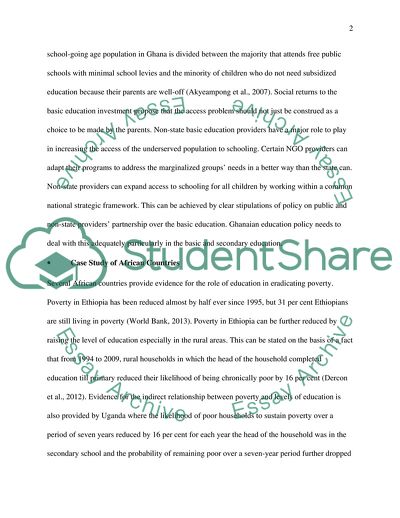Cite this document
(Provision of Free Basic Education in Poor Countries Term Paper Example | Topics and Well Written Essays - 1250 words, n.d.)
Provision of Free Basic Education in Poor Countries Term Paper Example | Topics and Well Written Essays - 1250 words. https://studentshare.org/education/1845697-discuss-the-arguments-for-and-against-the-provision-of-free-universal-basic-education-in-poor-countries
Provision of Free Basic Education in Poor Countries Term Paper Example | Topics and Well Written Essays - 1250 words. https://studentshare.org/education/1845697-discuss-the-arguments-for-and-against-the-provision-of-free-universal-basic-education-in-poor-countries
(Provision of Free Basic Education in Poor Countries Term Paper Example | Topics and Well Written Essays - 1250 Words)
Provision of Free Basic Education in Poor Countries Term Paper Example | Topics and Well Written Essays - 1250 Words. https://studentshare.org/education/1845697-discuss-the-arguments-for-and-against-the-provision-of-free-universal-basic-education-in-poor-countries.
Provision of Free Basic Education in Poor Countries Term Paper Example | Topics and Well Written Essays - 1250 Words. https://studentshare.org/education/1845697-discuss-the-arguments-for-and-against-the-provision-of-free-universal-basic-education-in-poor-countries.
“Provision of Free Basic Education in Poor Countries Term Paper Example | Topics and Well Written Essays - 1250 Words”. https://studentshare.org/education/1845697-discuss-the-arguments-for-and-against-the-provision-of-free-universal-basic-education-in-poor-countries.


